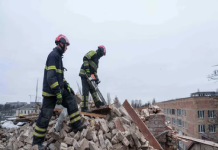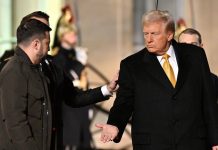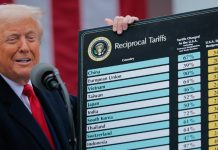Monday, February 2, 2026
More
Venezuelan President Nicolas Maduro, whose nearly 12 years in office have been marked by a deep economic and social crisis, is set to be sworn in for a third term on Friday, staying in power despite a six-month-long dispute over a July election and international calls for him to stand aside.
Maduro, president since 2013, was declared the winner of July’s election by both Venezuela’s electoral authority and top court, though detailed tallies confirming his victory have never been published.
Venezuela’s opposition says ballot box-level tallies show a landslide win for its former candidate Edmundo Gonzalez, who is recognized as president-elect by several governments including the United States. International election observers said the vote was unfair.
The months since the election have seen Gonzalez’s flight to Spain in September, his ally Maria Corina Machado going into hiding in Venezuela, and the detentions of high-profile opposition figures and protesters.
Gonzalez, who has been on a whistle-stop tour of the Americas this week, has said he will return to Venezuela to take up the mantle of president, but has given no details.
The government, which has accused the opposition of fomenting fascist plots against it, has said Gonzalez will be arrested if he returns and offered a $100,000 reward for information leading to his capture.
Both Gonzalez and Machado are being investigated by the attorney general’s office for alleged conspiracy, but only Gonzalez has a public warrant out for his arrest.
Machado’s first public appearance since August at an anti-government march in Caracas on Thursday was marred by a brief detention.
Her Vente Venezuela political movement said guns were fired and Machado was knocked off the motorcycle on which she was leaving the event. She was then held and forced to film several videos, it said.
“I am now in a safe place and with more determination than ever before to continue with you until the end!” Machado – who was barred from running in the election – said in a post on X after her release.
The government scoffed at the incident and denied any involvement, saying the opposition had orchestrated it to generate support for Machado.
The opposition, non-governmental organizations and international bodies such as the United Nations have for years decried increasing repression of opposition political parties, activists and independent media in Venezuela.
U.S. President-elect Donald Trump has said the country is being run by a dictator.
Meanwhile the government has repeatedly accused the opposition of plotting with foreign governments and agencies including the Central Intelligence Agency to commit acts of sabotage and terrorism.
The government said this week it had detained seven “mercenaries,” including a high-ranking FBI official and a U.S. military official.
Venezuela’s economy has experienced a prolonged crisis marked by triple-digit inflation and the exodus of more than 7 million migrants seeking better opportunities abroad.
Many of Machado’s supporters, among them retired Venezuelans who would like to see their children and grandchildren return to the country, say jobs, inflation and unreliable public services are among their top concerns.
The government, meanwhile, has employed orthodox methods to try and tamp down inflation, to some success, and has blamed economic collapse on sanctions by the United States and others, especially restrictions on the nation’s key oil industry.
Maduro and his allies have cheered what they say is the country’s resilience despite the measures, and Maduro said this month that the economy grew 9% last year.
His first act of his new term will be to call for a constitutional reform, Maduro said on Wednesday, though he provided no details.
About 2,000 people, including teenagers, were arrested at protests following the election. The government said this week it has released 1,515 of them.
Gonzalez, 75, said his son-in-law was kidnapped on Tuesday while taking his children to school.
© London Post, All Rights Reserved by Independent Media Group UK Limited.






